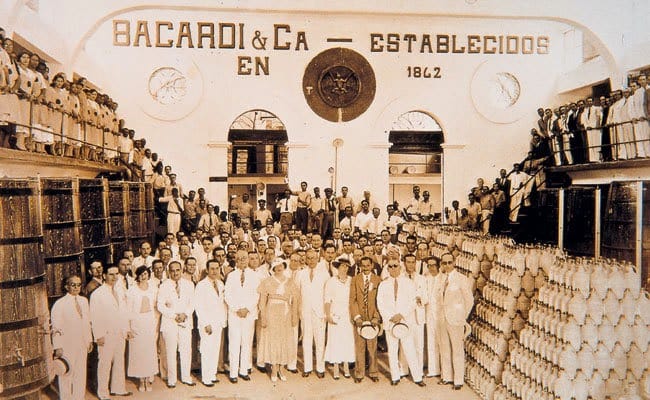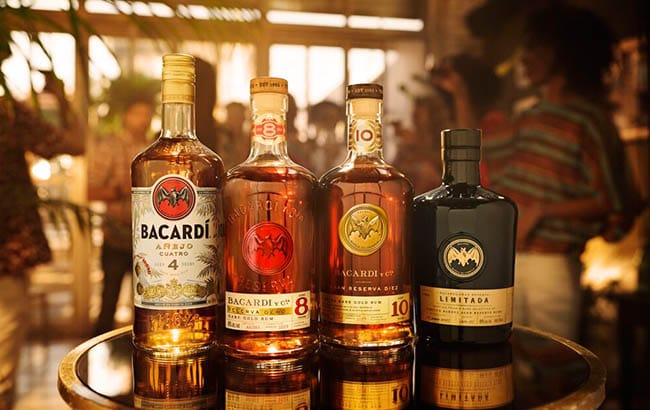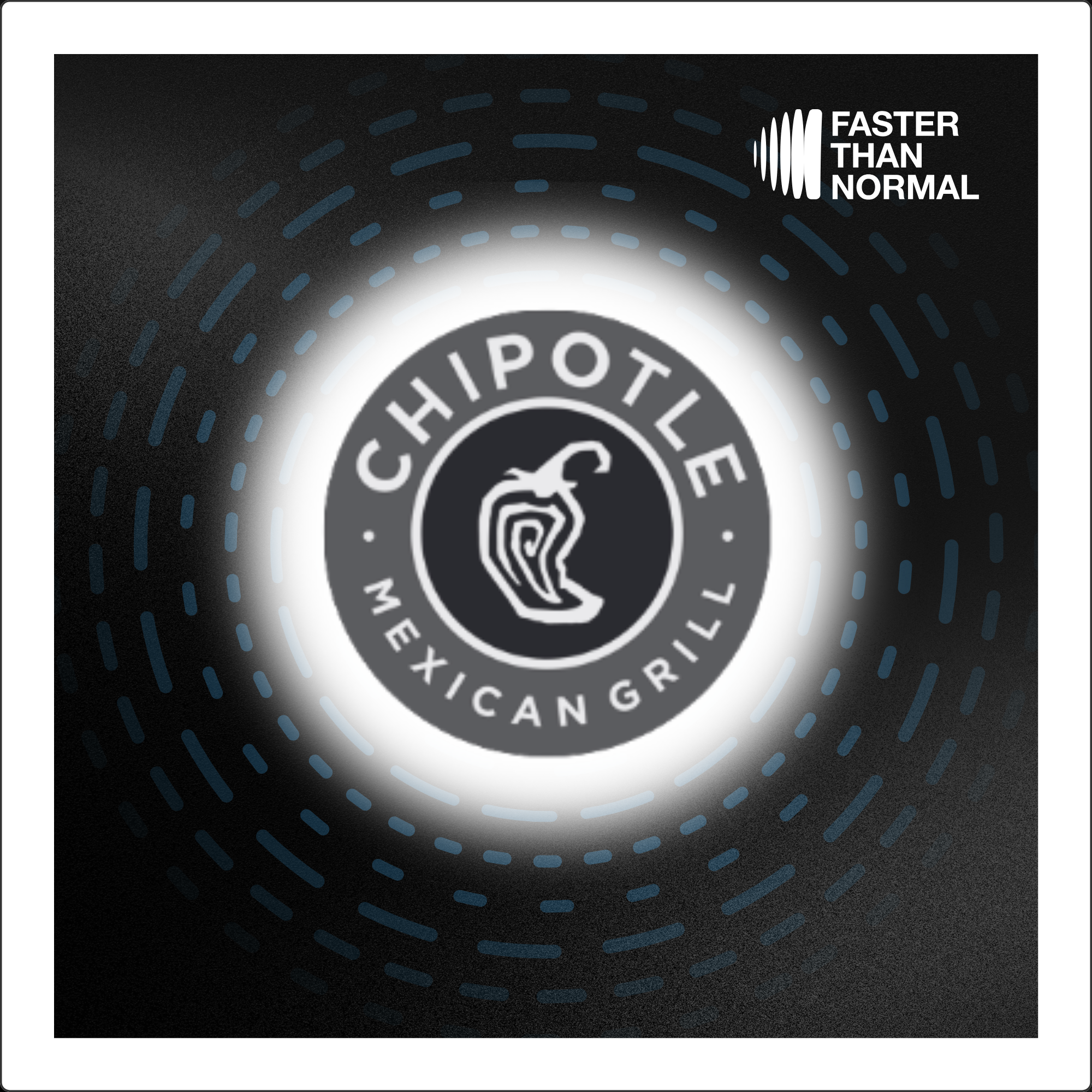Bacardi

Bacardi
The story of Bacardi is a testament to the power of resilience and family. It begins in 1862, when Don Facundo Bacardí Massó, a Spanish immigrant in Cuba, bought a small distillery in Santiago de Cuba. Times were tough. The region had just been hit by devastating earthquakes and a cholera outbreak. Facundo had lost two of his children and filed for bankruptcy.

But Facundo had an idea. He noticed a gap in the market for a refined rum that could appeal to the emerging middle class. "I saw an opportunity to create something new, something better," Facundo later recalled. He spent years experimenting, refining his techniques. His wife, Doña Amalia, supported him throughout this period of uncertainty.
The early years were challenging. Facundo faced skepticism from established rum producers and struggled to gain a foothold in the market. But he persevered. His breakthrough came when he developed a unique filtration system using charcoal, which produced a smoother, more palatable rum.
"We knew we had something special when people started asking for 'el ron del murcielago' - the rum of the bat," said Emilio Bacardi, Facundo's son, referring to the bat symbol that became the brand's iconic logo.

The company's fortunes began to turn. By 1888, Bacardi had won a gold medal at the Exposición Universal de Barcelona and was appointed 'Purveyor to the Royal Spanish Household'. The brand was gaining recognition beyond Cuba's shores.
But the road ahead was far from smooth. The company faced its biggest challenge yet with the Cuban Revolution in 1960. The Bacardi family, opponents of the Castro regime, were forced into exile. They lost their Cuban assets overnight.
"We left with nothing but our name and our know-how," said Joaquín Bacardi, a fourth-generation family member.
Yet, in this crisis lay opportunity. The family had wisely set up operations in Mexico and Puerto Rico in the 1930s. These facilities now became crucial. The company regrouped and focused on expanding globally.
"We turned adversity into opportunity," said Facundo L. Bacardi, the current Chairman of the Board. "It's in our DNA."
The company's transformation was remarkable. From a small Cuban distillery, Bacardi grew into a global spirits giant. By 1979, Bacardi rum was the world's top-selling premium spirit, with sales of nearly 16 million cases worldwide.
But the company didn't stop there. In the 1990s, Bacardi began expanding beyond rum. It acquired brands like Martini & Rossi, Dewar's Scotch whisky, and Bombay Sapphire gin. Each acquisition was strategic, broadening the company's portfolio and global reach.
Today, Bacardi Limited is the largest privately held spirits company in the world. It boasts over 200 brands and labels. The company's success is reflected in its numbers - in 2023, Bacardi reported net sales of $5.1 billion.
Despite its size, Bacardi remains a family-owned business, now in its seventh generation. The company's values of resilience, innovation, and family unity continue to guide its operations.
"Our history is one of never giving up," says current CEO Mahesh Madhavan. "It's about facing challenges head-on and coming out stronger."
Lessons
Lesson 1: Use crisis as a springboard for creativity. When Prohibition hit, Bacardi didn't just weather the storm. They used it to innovate. They promoted Cuba as a vacation destination where Americans could drink legally. "Come to Cuba and bathe in Bacardi rum" was their slogan. This crisis-driven pivot helped establish Bacardi as a lifestyle brand, not just a spirit.
Lesson 2: Don't just sell a product, sell an experience. Bacardi understood early on that they weren't just selling rum. They were selling the idea of tropical relaxation, of escape. "Bacardi and Cola - the mixable one" wasn't just a tagline. It was an invitation to consumers to create their own experiences.
Lesson 3: Turn your production process into a marketing tool. Facundo Bacardi's charcoal filtration system wasn't just about making smoother rum. It became a key differentiator and marketing point. The company turned a technical process into a story of craftsmanship and quality. They didn't just sell rum. They sold the idea of a refined, smooth spirit that stood apart from rough, unfiltered competitors.
Lesson 4: Think beyond your core product. Bacardi didn't stop at rum. In the 1990s, they began acquiring other spirits brands like Martini & Rossi, Dewar's Scotch whisky, and Bombay Sapphire gin. This diversification strategy has made them the largest privately held spirits company in the world.
Speeches and Interviews
- A Conversation with Facundo Bacardi - Cigar Aficionado
- BACARDI exec and former FREE FLOW BRANDS founder David McGeary interview
Book Recommendations
- "Bacardi and the Long Fight for Cuba: The Biography of a Cause" by Tom Gjelten
- "The Spirit of Bacardi: A Century of Leadership" by Jorge L. Hernández Bauza
- "Bacardi: The Hidden War" by Hernando Calvo Ospina
.png)








.png)

.png)
.png)
.png)
.png)


.png)
.png)























.png)




.png)


.png)






.png)

.png)


.png)
.png)